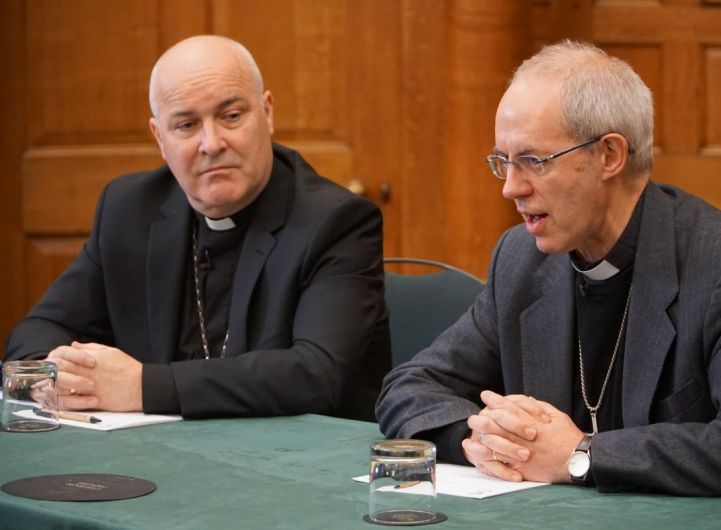 It’s a Church stuck in the Sixties – Tim Stanley in the Daily Telegraph
It’s a Church stuck in the Sixties – Tim Stanley in the Daily Telegraph
Covid should have been its moment, but the Anglican hierarchy would rather talk politics.
Justin Welby, the Archbishop of Canterbury, has announced that next year he will take a sabbatical. In the spirit of fair play, I have to admit that this is common among clerics and his predecessors did it, too (Rowan Williams knocked off for three months to write a book on Dostoevsky) – but my time is short, as is the Church’s, so I must be blunt. This does not look good.
We are in the middle of a national crisis, and it’s a crisis about death. This should be the Church’s big moment because the central message of Christianity is that while death is bad – and we will accompany you through it – it’s not the end. Jesus lived. He died. He rose again. This, Christians believe, is a historical fact, and it’s this outrageous claim that converted much of the world to Christ.
But there is no accompaniment in 2020 because the churches have been shut (earlier this year, the Anglicans banned even their own clerics from entering them), and though the Church of England hierarchy spreads the Good News, it tends to do so quietly and thinly. In the past few days alone, the Archbishop has also spoken in defence of Britain’s foreign aid budget and urged the world to ban the bomb.
It’s a Church stuck in the Sixties, when much of Western Christianity took a new stance on death – it embraced a cult of moral divestment, of giving itself away piece by piece, making no judgment of its inheritors, asking nothing in return. Anglican theology, once the trigger for civil war, is now impossible to decipher, and while the hierarchy’s causes have often been just, the Church “progresses” without moving forward.
Every concession to what it thinks the world wants of it is instantly met by a new demand; the internal debate, one suspects, is what some Anglicans live for. There is no terminus except institutional death – the point at which the Church has accompanied society so far without question that, rather than trying to change us, it has become just as confused, materialistic, secular and scared as the general population.
The beauty and the liturgy remain, but what do they mean without faith? Without faith, the volunteers and money will eventually vanish, too, and the architecture will fall to ruin. It feels as if much of the Church of England has been on sabbatical for 50 years.
I’m not casting stones: my lot, the Catholics, are drowning in troubles. But whenever a trendy nun in jeans tells me Rome should move with the times, I point straight to the Anglicans as an example of a Church that surrendered to modernity on every demand yet has fallen faster, harder, than anyone else. Chasing relevance leads to irrelevance because you’re no longer special – except as a lesson in what not to do.
It’s hard leading a divided communion in a soulless age, but it was probably harder to convert pagan Britain in the sixth and seventh centuries – and what the mission required then, as now, was spiritual leadership. So, my very best wishes to the Archbishop, and I hope he returns with a fresh sense of zeal.
Drop the namby-pamby hand-wringing. If any journalist wants to debate whether God is a feminist, or the appalling injustice of a veal cutlet, tell them politely but firmly that you just don’t care, which is the correct answer to most culture war issues. When a Church has as little time left on Earth as the Church of England does, you can’t mess about.


